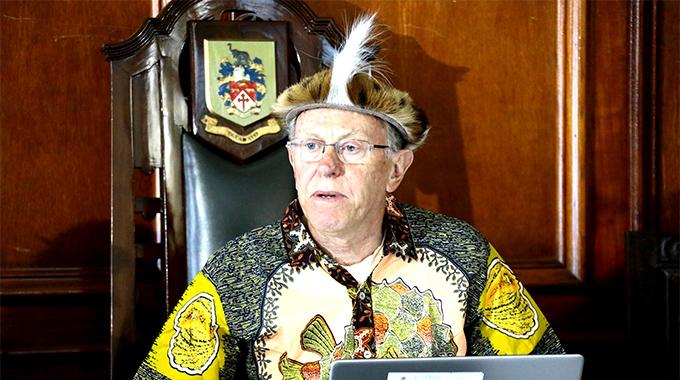News / Local
BCC consider 2 000-metre drilling rigs to exploit aquifer under the city
08 Sep 2024 at 09:06hrs |
0 Views

Bulawayo is exploring the use of deep drilling rigs to access water from aquifers beneath the city as a solution to its ongoing water shortages. Despite being situated atop a significant aquifer, the city has struggled with water scarcity.
A recent council meeting highlighted the need to tap into this aquifer to alleviate the water crisis, with Mayor David Coltart noting the potential of using advanced drilling rigs, similar to those used in Botswana for gas extraction, which can reach depths of up to 2000 meters.
Councillors at the meeting voiced concerns about the deteriorating water situation in Bulawayo as summer approaches. They pointed out that several supply dams are nearing decommissioning, which could exacerbate the problem. Issues such as evaporation losses and leaks in the water reticulation system were also discussed, raising alarm about the city's ability to manage its water resources effectively.
There were also concerns about illegal mining activities along the riverbed, which have exposed the Insiza pipeline and increased the risk of further damage. Councillors called for increased security measures from the Central Government to protect these critical infrastructure components and prevent additional harm.
A particular emphasis was placed on the need for extensive research into the city's underground water sources. Critics argued that the current medium- and long-term plans are inadequate given the region's erratic rainfall and delays in the construction of the Bhopoma dam. The urgency of developing more effective strategies for managing water resources was a key point of discussion.
Residents are increasingly affected by the water crisis, with many experiencing weekly water delivery restrictions and extended periods without access to council water. The reliance on bowser water services has raised concerns about contamination risks due to the transfer of water from bowsers into domestic containers.
Mayor David Coltart acknowledged the council's efforts to investigate borehole drilling technologies to access deeper aquifers. However, he also pointed out the negative impact of illegal gold panning, which has damaged riverbanks and worsened water quality, complicating efforts to secure a reliable water supply.
The meeting highlighted the urgent need for sustainable solutions to Bulawayo's escalating water crisis. Residents are calling for clear timelines and actionable plans to improve water service delivery, as the city continues to face significant challenges in managing its water resources.
A recent council meeting highlighted the need to tap into this aquifer to alleviate the water crisis, with Mayor David Coltart noting the potential of using advanced drilling rigs, similar to those used in Botswana for gas extraction, which can reach depths of up to 2000 meters.
Councillors at the meeting voiced concerns about the deteriorating water situation in Bulawayo as summer approaches. They pointed out that several supply dams are nearing decommissioning, which could exacerbate the problem. Issues such as evaporation losses and leaks in the water reticulation system were also discussed, raising alarm about the city's ability to manage its water resources effectively.
There were also concerns about illegal mining activities along the riverbed, which have exposed the Insiza pipeline and increased the risk of further damage. Councillors called for increased security measures from the Central Government to protect these critical infrastructure components and prevent additional harm.
A particular emphasis was placed on the need for extensive research into the city's underground water sources. Critics argued that the current medium- and long-term plans are inadequate given the region's erratic rainfall and delays in the construction of the Bhopoma dam. The urgency of developing more effective strategies for managing water resources was a key point of discussion.
Residents are increasingly affected by the water crisis, with many experiencing weekly water delivery restrictions and extended periods without access to council water. The reliance on bowser water services has raised concerns about contamination risks due to the transfer of water from bowsers into domestic containers.
Mayor David Coltart acknowledged the council's efforts to investigate borehole drilling technologies to access deeper aquifers. However, he also pointed out the negative impact of illegal gold panning, which has damaged riverbanks and worsened water quality, complicating efforts to secure a reliable water supply.
The meeting highlighted the urgent need for sustainable solutions to Bulawayo's escalating water crisis. Residents are calling for clear timelines and actionable plans to improve water service delivery, as the city continues to face significant challenges in managing its water resources.
Source - The Chronicle
Join the discussion
Loading comments…































